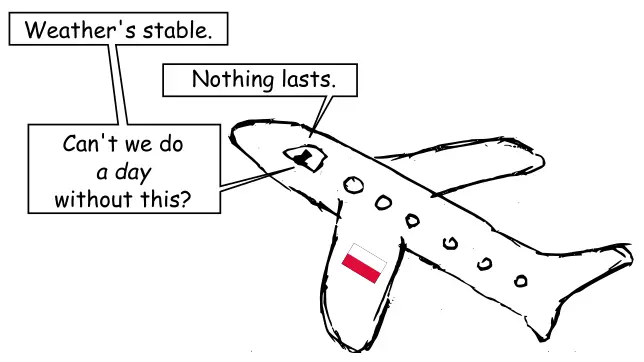How does culture affect our communication? How can we be more attuned to how others communicate?
In “Outliers”, Malcolm Gladwell describes how pilots from some countries were involved in more crashes. It seemed to be correlated with their culture. Their politeness made it harder to speak up, especially to superiors. Their communication was courteous and nuanced. That’s how they were raised. But it was not suited for emergencies. By softening their feedback, pilots put another chip on the stack of mistakes. When investigators listened to the recordings from the cockpit, they concluded that if the feedback was clearer, it would have been enough to avoid the disaster. Over time, aviation agencies recognized the correlation between the culture, the style of communication, and crashes. Teaching pilots to communicate directly lowered the number of incidents.
(I recommend the book a lot. I’m not doing it justice.)
While reading this story, I thought that software engineering isn’t that far off. I’ve dealt with different cultures and a lot of miscommunication. For example, how do people communicate that a project will take longer than estimated? Engineers who tend to be less direct often struggle to say it clearly: we are behind schedule. And when they do, it’s too late. Often, it’s not that they don’t say it. It’s just not clear. Sometimes I was lucky and I caught a silent plea for help. Dressed in many words. Describing the task, the obstacle. But not prefacing the message with a simple “I am blocked” or “I need help”. Much like the pilots.
If we work with a team long enough, we might get better at listening for quirks of our teammates. If we listen. But can we learn it quicker? I’ve once tried workshops, which were designed to help with exactly that. The presentation and exercises attempted to attribute certain characteristics to individuals based on their nationalities. That felt like justifying stereotypes. The group had people I did and didn’t know. For the former, I knew right away that we were on the wrong track. For the latter, it took me couple of weeks to realize it is bullshit. Why would we try to apply the average of the country to the person we have in front of us? Time well spent - at least I know what doesn’t work.
I do take someone’s culture and background seriously. But this is to broaden my horizons and check my biases. It helps me spot my assumptions. I ask people: How do you give feedback? Are you direct, or do you tend to soften it? How do you want to receive it? Answers don’t always align with reality. Some people don’t know themselves, haven’t thought about it, or just want to see themselves in a different light. It’s still a better starting point. It might ignite some discussions. It might save our plane from the next incident.
